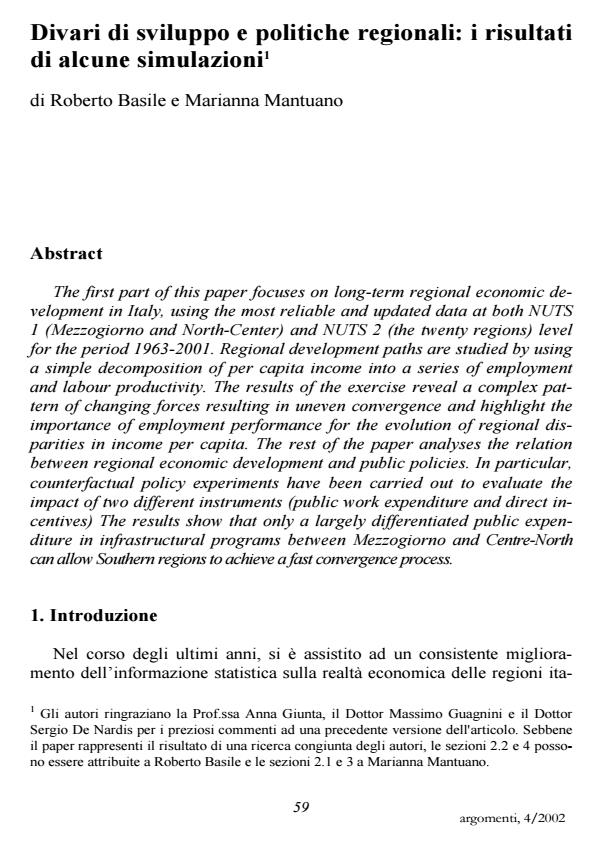Divari di sviluppo e politiche regionali: i risultati di alcune simulazioni
Titolo Rivista ARGOMENTI
Autori/Curatori Roberto Basile, Marianna Mantuano
Anno di pubblicazione 2002 Fascicolo 2002/4
Lingua Italiano Numero pagine 26 P. Dimensione file 234 KB
DOI
Il DOI è il codice a barre della proprietà intellettuale: per saperne di più
clicca qui
Qui sotto puoi vedere in anteprima la prima pagina di questo articolo.
Se questo articolo ti interessa, lo puoi acquistare (e scaricare in formato pdf) seguendo le facili indicazioni per acquistare il download credit. Acquista Download Credits per scaricare questo Articolo in formato PDF

FrancoAngeli è membro della Publishers International Linking Association, Inc (PILA)associazione indipendente e non profit per facilitare (attraverso i servizi tecnologici implementati da CrossRef.org) l’accesso degli studiosi ai contenuti digitali nelle pubblicazioni professionali e scientifiche
The first part of this paper focuses on long-term regional economic development in Italy, using the most reliable and updated data at both NUTS 1 (Mezzogiorno and North-Center) and NUTS 2 (the twenty regions) level for the period 1963-2001. Regional development paths are studied by using a simple decomposition of per capita income into a series of employment and labour productivity. The results of the exercise reveal a complex pattern of changing forces resulting in uneven convergence and highlight the importance of employment performance for the evolution of regional disparities in income per capita. The rest of the paper analyses the relation between regional economic development and public policies. In particular, counterfactual policy experiments have been carried out to evaluate the impact of two different instruments (public work expenditure and direct incentives) The results show that only a largely differentiated public expenditure in infrastructural programs between Mezzogiorno and Centre-North can allow Southern regions to achieve a fast convergence process.
Roberto Basile, Marianna Mantuano, Divari di sviluppo e politiche regionali: i risultati di alcune simulazioni in "ARGOMENTI" 4/2002, pp , DOI: